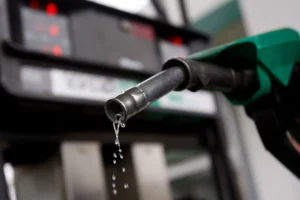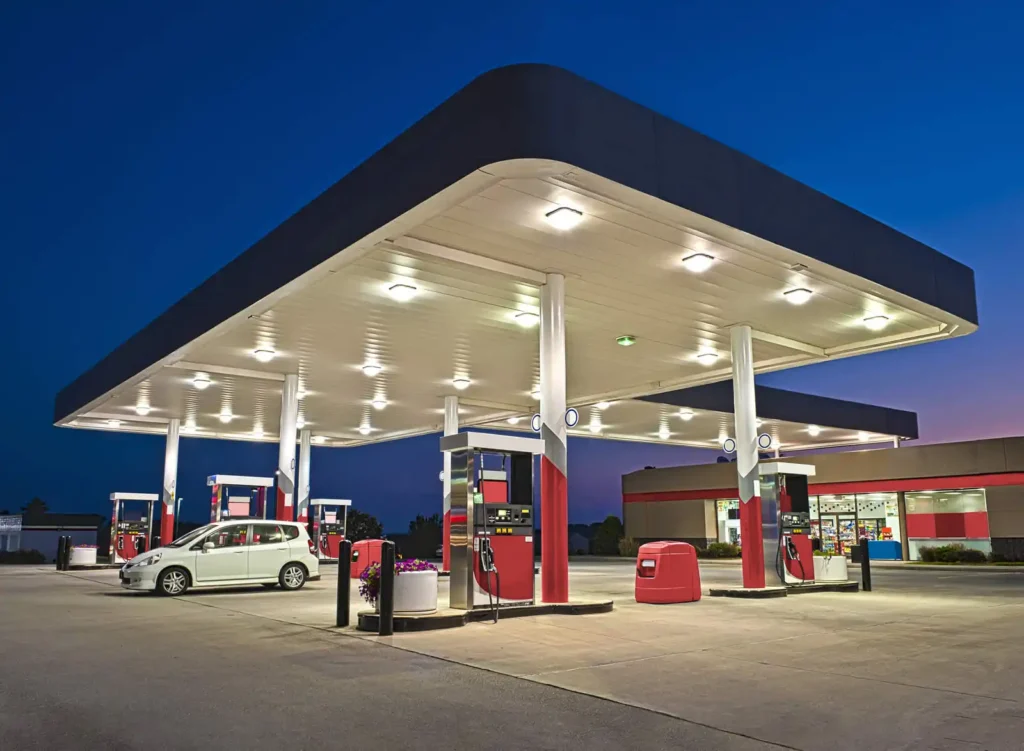In the first quarter of 2025, Nigeria achieved a dramatic 54% reduction in petrol import spending, dropping from ₦3.81 trillion in Q1 2024 to ₦1.76 trillion. Compared to the ₦3.3 trillion spent in Q4 2024, this represents a 47% cut. It marks the lowest quarterly petrol import bill in five years, reflecting a significant shift toward local refining capabilities.
This dramatic decline aligns with expanded production at the Dangote Petroleum Refinery, which began delivering petrol at scale—up to 30 million litres per day by early 2025—and satisfying roughly 60% of national demand. With capacity reaching 650,000 barrels per day, Dangote was central to the country’s shift away from near-total import reliance.

Import Patterns: a Five-Year Retrospective
Nigeria’s petrol import bill steadily rose from ₦732 billion in Q1 2020, to ₦2.69 trillion by Q1 2022, and ₦3.81 trillion by Q1 2024. At ₦1.76 trillion this quarter, the bill has receded to 2021 levels. These figures highlight a reversal in long-standing import dependency.
The reduction translated into a daily decline of nearly 29.9 million litres in imported petrol, bringing imports down to 14.7 million litres per day by mid-April 2025 from a high of 44.6 million litres in August 2024. Domestic refineries boosted production by 670%, reaching around 26.2 million litres daily—the equilibrium point in Nigeria’s energy shift.
Pricing Effects: Consumers See Relief
Following the shift in supply dynamics, pump prices in Lagos dipped to about ₦860 per litre. This sparked a downstream pricing competition that brought consumer costs more in line with refinery-level costs, reducing retail margins.
The price drop helped ease inflationary pressure—an important development given consumer price inflation stood around 23% in early 2025. The reduction in import demand also relieved foreign exchange pressures, helping stabilize reserves and exchange rates.
Infrastructure: Reactivation of National Refineries
Nigeria’s downstream sector benefited not only from Dangote’s output but also from the rehabilitation of state-owned refineries in Port Harcourt, Warri, and Kaduna. Though still underperforming, these assets contributed to a broader refining base.
Modular refineries and local blending at regional hubs like Togo’s Lomé terminal supplemented domestic production. Pan-African traders increasingly converged on these local facilities to meet regional demand—highlighting Nigeria’s evolving role in West Africa’s fuel ecosystem.
Policy Implications and Market Outlook
The sharply reduced import bill reflects more than just lower import volumes—it signals foundational progress in the country’s energy policy.
Moving forward, authorities must ensure the newly built refining capacity remains reliable and accessible:
-
Feedstock Security: Guarantee consistent crude supply to Dangote and NNPC facilities.
-
Transparent Pricing: Maintain competitiveness without distorting downstream markets.
-
Maintenance and Growth: Support modular refineries to diversify operating capacity.
-
Infrastructure Security: Protect pipelines, storage facilities, and refineries from vandalism.
Ongoing oversight is critical: regulators must prevent supply bottlenecks, maintain market discipline, and prevent unilateral pricing interventions that could destabilize the sector.
Economic Impact: Exchange Rate Relief and Revenue Retention
By slashing petrol imports, Nigeria conserved foreign exchange reserves, reducing dollar demand. This helps stabilize exchange rates and lowers external borrowing pressure.
Import savings also keep capital within the country. The monetary equivalent of reduced import spending potentially feeds into infrastructure, local investment, and economic stimulus—reinforcing the development agenda.
Consumer Benefits and Domestic Market Strengthening
Lower pump prices eased living costs and may support consumer confidence. The nation regained greater control over supply chains, reducing exposure to global price spikes and logistical disruptions.
These gains lay the groundwork for expanded fuel access and improved energy equity. As downstream capacity grows, access to essential fuel improves bottom-up, not just at urban retail outlets.
Regional Integration and Export Potential
Nigeria’s upgraded refining footprint gives it unprecedented scope to become a regional fuel exporter, not just a consumer. In late 2025, refined product exports may begin, providing foreign revenue and laying groundwork for Nigeria’s role as a West African energy hub.
Future corridor projects—for example, blending terminals in Petral or Lomé—enhance this trajectory, turning Nigeria from importer to exporter and regional market backstop.
Remaining Risks and Areas to Monitor
The newfound refining capacity comes with vulnerabilities:
-
Crude Procurement: Foreign debt obligations or production constraints at home can restrict feedstock.
-
Pipeline Security: Vandalism or theft of transportation infrastructure remains a major risk.
-
Weather Patterns: Flooding or disruptions can affect refinery operations and distribution.
-
Global Price Shocks: Sudden swings in crude price—while reducing reliance—can still financially strain domestic operations.
Tackling these requires robust security, pipeline monitoring, and integrated emergency plans.
A Turning Point for Nigeria’s Energy Independence
The Q1 2025 petrol import reduction marks a historical inflection point. No longer dependent on far-off refineries, Nigeria now produces enough gasoline sustainably to meet local needs and start exploring export opportunities.
If current trends hold—and enforcement, infrastructure, and competitive markets thrive—Nigeria could emerge as a net refined product exporter by late next year. The implications reach far beyond fuel bills, touching exchange rate stability, job creation, manufacturing resilience, and energy sovereignty.
Conclusion
Nigeria’s dramatic 54% reduction in petrol import spending in Q1 2025 reflects more than cost-cutting: it signals a fundamental transformation in the country’s energy framework. Homegrown refining now fulfills most of local demand, stabilizing consumer prices, conserving foreign reserves, and anchoring national energy security.
To solidify these gains, policymakers, regulators, and industry players must coordinate on infrastructure repair, feedstock access, pricing oversight, and pipeline protection. If sustained, this structural shift could mark the beginning of a new era—one where Nigeria secures its own energy future, fosters economic resilience, and asserts regional leadership.







